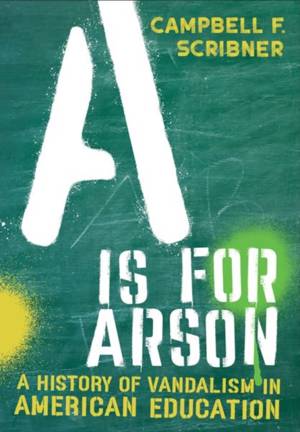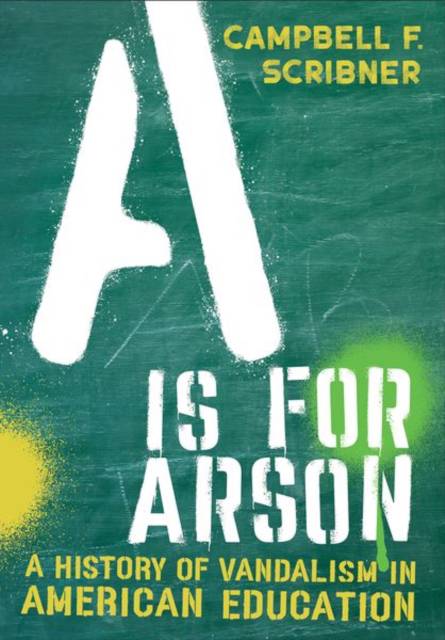
- Retrait gratuit dans votre magasin Club
- 7.000.000 titres dans notre catalogue
- Payer en toute sécurité
- Toujours un magasin près de chez vous
- Retrait gratuit dans votre magasin Club
- 7.000.0000 titres dans notre catalogue
- Payer en toute sécurité
- Toujours un magasin près de chez vous
Description
In A Is for Arson, Campbell F. Scribner sifts through two centuries of debris to uncover the conditions that have prompted school vandalism and to explain why attempts at prevention have inevitably failed. Vandalism costs taxpayers hundreds of millions of dollars every year, as students, parents, and even teachers wreak havoc on school buildings. Why do they do it? Can anything stop them? Who should pay for the damage? Underlying these questions are long-standing tensions between freedom and authority, and between wantonness and reason.
Property destruction is not simply a moral failing, to be addressed with harsher punishments, nor can the problem be solved through more restrictive architecture or policing. Scribner argues that education itself is a source of intractable struggle, and that vandalism is often the result of an unruly humanity. To understand schooling in the United States, one must first confront the all-too-human emotions that have led to fires, broken windows, and graffiti.
A Is for Arson captures those emotions through new historical evidence and diverse theoretical perspectives, helping readers understand vandalism variously as a form of political conflict, as self-education, and as sheer chaos. By analyzing physical artifacts as well as archival sources, Scribner offers new perspectives on children's misbehavior and adults' reactions and allows readers to see the complexities of education--the built environment of teaching and learning, evolving approaches to youth psychology and student discipline--through the eyes of its often resistant subjects.
Spécifications
Parties prenantes
- Auteur(s) :
- Editeur:
Contenu
- Nombre de pages :
- 240
- Langue:
- Anglais
- Collection :
Caractéristiques
- EAN:
- 9781501770722
- Date de parution :
- 15-07-23
- Format:
- Livre relié
- Format numérique:
- Genaaid
- Dimensions :
- 152 mm x 229 mm
- Poids :
- 508 g

Les avis
Nous publions uniquement les avis qui respectent les conditions requises. Consultez nos conditions pour les avis.






